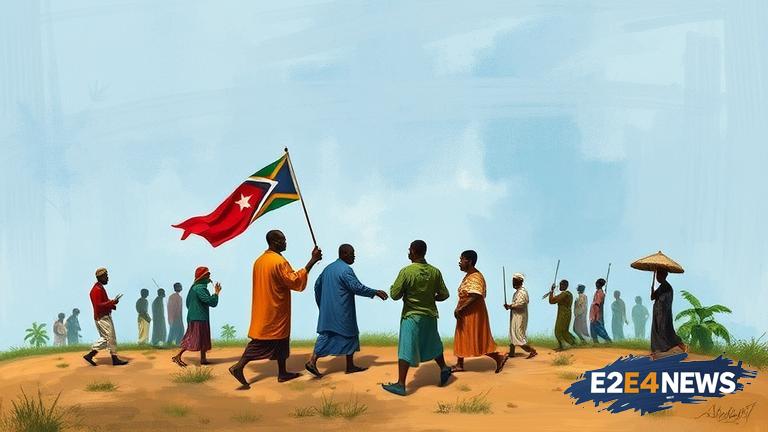Liberia, a country with a rich history and cultural heritage, has been grappling with the concept of unity and reconciliation for decades. The Karfiah phenomenon, which refers to the societal divisions and conflicts that have plagued the nation, has been a major obstacle to achieving unity. However, in recent years, there has been a growing recognition of the need for unity and reconciliation, and efforts have been made to address the root causes of these divisions. The Liberian government, civil society organizations, and community leaders have been working together to promote unity and reconciliation, through initiatives such as dialogue, education, and economic empowerment. One of the key challenges to unity in Liberia is the legacy of the civil war, which left deep scars and divisions in the society. The war, which lasted from 1989 to 2003, was characterized by brutal violence, human rights abuses, and the displacement of millions of people. The aftermath of the war saw the establishment of the Truth and Reconciliation Commission, which aimed to investigate human rights abuses and promote reconciliation. However, the commission’s recommendations were not fully implemented, and many of the perpetrators of human rights abuses were not held accountable. This has contributed to ongoing tensions and divisions in the society. Another challenge to unity in Liberia is the issue of corruption, which has been a major obstacle to economic development and social progress. Corruption has led to the misallocation of resources, the enrichment of a few individuals, and the marginalization of many citizens. The lack of access to basic services such as healthcare, education, and sanitation has also contributed to social and economic inequalities. Furthermore, the country’s history of ethnic and regional divisions has also played a role in undermining unity. The Karfiah phenomenon, which is characterized by a sense of superiority and exclusivity, has been used to justify discrimination and violence against certain groups. However, there are also many examples of unity and cooperation in Liberia, particularly at the community level. Many communities have come together to promote peace, reconciliation, and development, through initiatives such as community-based organizations and traditional councils. The role of women in promoting unity and reconciliation has also been significant, as they have played a key role in mediating conflicts and promoting dialogue. The Liberian government has also taken steps to promote unity and reconciliation, including the establishment of the Ministry of Internal Affairs and the National Commission on Reconciliation. These institutions have been working to promote dialogue, education, and economic empowerment, and to address the root causes of societal divisions. In addition, the government has also been working to promote economic development and social progress, through initiatives such as infrastructure development, agriculture, and healthcare. The international community has also played a role in promoting unity and reconciliation in Liberia, through support for peacebuilding and development initiatives. The United Nations, the European Union, and other international organizations have provided significant support for Liberia’s peacebuilding and development efforts. In conclusion, Liberia’s quest for unity and reconciliation is a complex and ongoing process, which requires the efforts of all stakeholders, including the government, civil society, and the international community. While there have been challenges and setbacks, there are also many examples of unity and cooperation, and a growing recognition of the need for reconciliation and social cohesion. As Liberia continues on its journey towards unity and reconciliation, it is essential that all stakeholders work together to address the root causes of societal divisions, promote dialogue and education, and support economic development and social progress.
